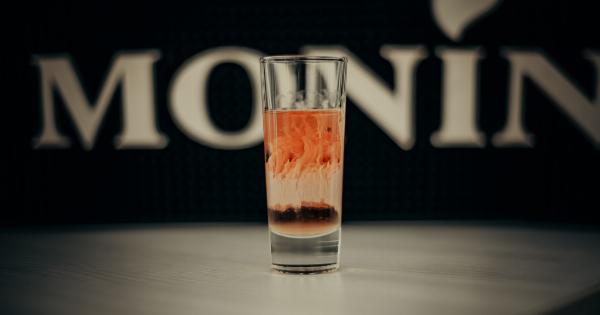Migraines are debilitating headaches that can significantly impact an individual’s quality of life. They are often characterized by severe throbbing or pulsating pain, usually on one side of the head.
Migraines can also bring about other symptoms such as nausea, vomiting, and extreme sensitivity to light and sound. While the exact cause of migraines is still not fully understood, several triggers have been identified, and one of them is dehydration.
The Importance of Hydration
Water is an essential component of our bodies, accounting for about 60% of our total body weight.
It plays a vital role in maintaining various bodily functions, including regulating body temperature, transporting nutrients, and flushing out waste and toxins. When we become dehydrated, our bodies experience a range of negative effects, which can include headaches and migraines.
How Dehydration Triggers Migraines
Dehydration affects the brain and its surrounding tissues. When we lose more fluids than we consume, our blood vessels constrict, reducing the flow of oxygen and nutrients to the brain.
This restriction in blood flow can trigger migraines in susceptible individuals. Dehydration can also affect the production and balance of neurotransmitters, chemicals that help send signals between nerve cells. These imbalances can directly contribute to the onset of migraines.
Identifying Dehydration Triggers
It’s important to identify the specific triggers that cause dehydration-induced migraines. Some common triggers include intense physical activity, hot weather, excessive sweating, certain medications, and inadequate fluid intake.
By recognizing these triggers, individuals can take preventive measures to stay properly hydrated and minimize the occurrence of migraines.
The Role of Hydration in Migraine Management
Maintaining proper hydration levels is crucial for managing migraines. By addressing the underlying cause of dehydration, individuals can potentially reduce the frequency and severity of their migraines.
Adequate hydration can also enhance the effectiveness of migraine medications and other forms of treatment.
How Much Water Should You Drink?
The optimal amount of water required varies from person to person, depending on factors like age, sex, weight, and activity level. However, a general guideline is to aim for at least eight 8-ounce glasses of water per day.
It’s important to note that this is just a starting point and individual needs may vary.
Signs of Dehydration to Watch For
Recognizing the signs of dehydration is essential in ensuring timely intervention. Some common signs include:.
- Thirst and dry mouth
- Dark yellow or amber-colored urine
- Headaches and migraines
- Fatigue and dizziness
- Muscle cramps
- Poor concentration and brain fog
Tips for Maintaining Hydration
To maintain proper hydration and prevent dehydration-triggered migraines, consider implementing the following tips:.
1. Drink Water Regularly
Make it a habit to drink water consistently throughout the day. Set reminders or use water tracking apps to ensure you meet your daily intake goals.
2. Monitor Urine Color
Pay attention to the color of your urine. Clear or light yellow urine indicates good hydration, while dark urine suggests dehydration.
3. Be Mindful of External Factors
During hot weather or intense physical activities, increase your water intake to compensate for fluid loss through sweating.
4. Choose Hydrating Foods
Include water-rich foods in your diet, such as fruits and vegetables with high water content, to supplement your hydration efforts.
5. Limit Diuretic Beverages
Avoid excessive consumption of diuretic beverages like caffeine and alcohol, as they can contribute to dehydration.
6. Monitor Medications
Some medications can cause increased urination or have diuretic effects. If you take such medications, consult your healthcare provider regarding hydration strategies.
7. Consider Electrolyte Intake
Electrolytes, such as sodium and potassium, play a crucial role in maintaining hydration. Consider including electrolyte-rich beverages or supplements in your hydration routine.
8. Listen to Your Body
Pay attention to your body’s signals and drink water when you feel thirsty. Thirst is often a late indicator of dehydration, so don’t wait until you feel parched.
When to Seek Medical Advice
If you experience frequent migraines or have concerns about hydration, it’s best to consult with a healthcare professional. They can provide personalized guidance based on your specific needs and medical history.
Conclusion
Proper hydration plays a crucial role in managing migraines. Staying adequately hydrated can reduce the frequency and severity of migraines caused by dehydration.
By recognizing dehydration triggers, monitoring fluid intake, and implementing healthy hydration habits, individuals can improve their overall migraine management and enjoy a better quality of life.






























